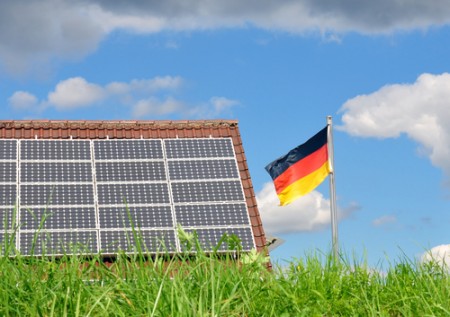Germany's Green Energy is expensive success

By Bloomberg
It's easy to declare Germany's ambitious policy of moving to clean energy from both fossil fuels and nuclear power a failure. Germany will miss its 2020 greenhouse gas emission targets, it's burning more coal than five years ago, and household electricity bills here are now some of the highest in the developed world. To me, however, the policy's results show how a determined government can shake up complacent oligopolies and point their thinking in a different direction.
Several months ago, U.S. Senator Dan Coats, who had served as ambassador to Germany, blasted Germany's transition, the Energiewende, as "misguided executive branch overreach and regulatory attack on energy industries." It's easy to see where he was coming from.
The German government's subsidies to wind, solar and other renewable energy producers have grown to 20 billion euros per year (almost $26 billion at the current exchange rate) since 1991, when Germany first started the financial support. With that massive amount of aid, Germany overshot by three percentage points the European Union's 1997 goal of producing 12 percent of electricity from renewable sources by 2010. In the first quarter of 2014, Germany's electricity mix had a 27 percent renewable share.
It skewed the market. Because of renewable energy's low production cost, wholesale electricity prices have dropped 60 percent since 2008. That has made it unprofitable for traditional utilities to operate natural gas-burning power plants. Russian gas imports are not just a geopolitical risk for Germany: They contribute to energy companies' losses.
Nuclear power would have been the natural fallback, but after the Fukushima disaster of 2011, German Chancellor Angela Merkel ordered eight of the country's oldest reactors shut down and the rest phased out by 2022.
Germany's four big utilities, RWE, E.ON, EnBW and Swedish-owned Vattenfall have been forced to use more coal, of which there's an oversupply in the U.S. because of the shale gas revolution. The coal is cheap, and it allows the utilities to run power plants with minimal profit margins, but its use contradicts the government's goal of reducing greenhouse gas emissions by 40 percent of the 1990 level by 2020. Until Fukushima, Germany was on track, but from 2011 to 2013, emissions increased 2.4 percent. Thus, the share of renewable energy and emissions grew at the same time.
Meanwhile, German households picked up the growing bill for the subsidies, which last year accounted for 18 percent of the average energy price for them, twice as much as in 2010. The German consumers were thus subsidizing energy-intensive industries, which have generous exemptions from the renewable energy subsidies.
This set of facts paints the German policy as an unmitigated disaster. It isn't, however, the whole story.
The drop in wholesale prices boosted the competitiveness of Germany's energy-intensive industries. Germany's economy did not, however, become an energy hog. According to Eurostat, the country's industry is the sixth least energy-intensive on the continent. Household electricity consumption has been going down by about 1 percent per year since 2005 as higher prices forced Germans to save energy. My Berlin apartment, like many others, has only low-consumption diode light bulbs.
Perhaps most importantly, however, the energy reform transferred power from the traditional utility companies to some of those same private consumers who are supposedly suffering from high electricity prices:
A whopping 46 percent of Germany's renewable energy generation is done by private individuals and farmers, compared with just 5 percent for the "big four" power providers. The German people, who created the political will for the green transition, have been benefiting by becoming more self-sufficient.
Granted, that is not always possible, but the incredible uptake of sustainable generation by ordinary citizens and the tiny share of traditional utilities tell a important story. The German energy industry has been deeply unhappy with the reforms and has lobbied incessantly to amend them, but had the utilities embraced them, and absorbed the inevitable losses earlier, the industry would have been in better shape.
As it is, RWE only posted its first loss since 1949 last year, but its future looks gloomy despite its management's belated change of heart. Its chief executive, Peter Terium, now says: "My dream, my vision is that RWE will put solar panels on your roof, a battery in your shed, a heat pump in your cellar, and we will also manage this complex energy system for you. We want to be the holistic energy manager of the future."
The Energiewende will go on despite its obvious setbacks. There are countries in Europe that already generate more than half of their electricity from renewable sources, such as Sweden, and others that are getting there, such as Austria, and the continent's biggest economy is trying hard to catch up. The German government's determination to experiment, and citizens' continued willingness to pay for these experiments if they lead to a cleaner future, carry important lessons for the U.S. and other countries where politicians are afraid of the kind of upheavals that Germany has faced.
Here we are to serve you with news right now. It does not cost much, but worth your attention.
Choose to support open, independent, quality journalism and subscribe on a monthly basis.
By subscribing to our online newspaper, you can have full digital access to all news, analysis, and much more.
You can also follow AzerNEWS on Twitter @AzerNewsAz or Facebook @AzerNewsNewspaper
Thank you!
